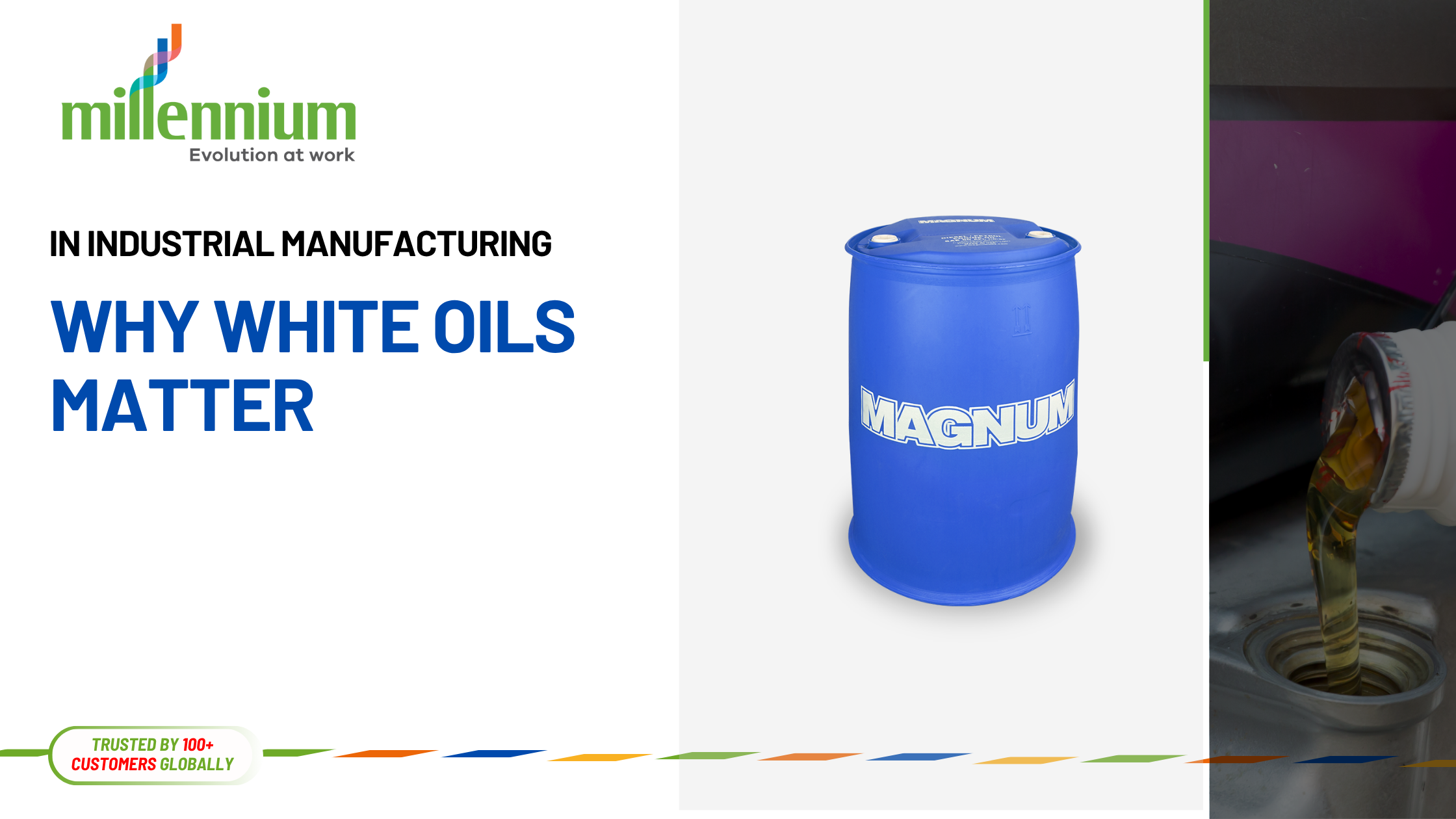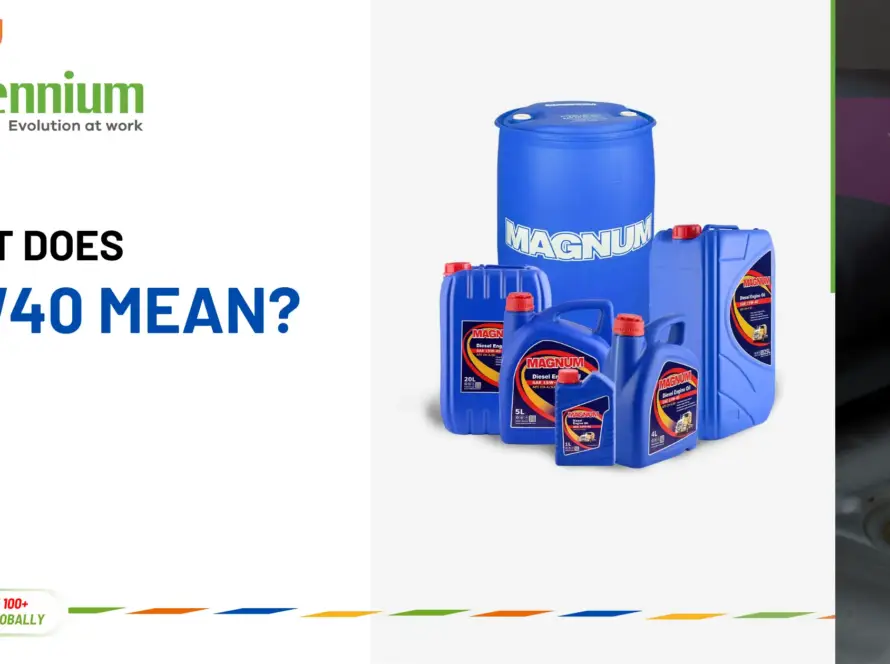Let’s be honest, white mineral oils don’t usually steal the spotlight in manufacturing. They’re clear, odorless, and not exactly headline material. But if you’re in plastics, textiles, rubber, or chemical blending, this stuff quietly keeps your process running smoother, safer, and more consistently than you’d think.
Most people hear “white oil” and picture baby lotion or cold cream. And yes, pharma and cosmetics use it. But industrial-grade white oils? That’s a whole different story. Think anti-static yarn lubes, PVC processing aids, adhesive diluents, the kind of behind-the-scenes magic that keeps factories productive.
Here’s what they are, how they’re used, and why Magnum’s white oils are engineered for performance, no fluff, just clean results.
What Exactly Is White Mineral Oil?
White mineral oils (aka light mineral oils) are highly refined paraffinic or naphthenic oils that go through serious purification, think hydrocracking, hydrotreating, and filtration. The goal? Strip out the odds: sulfur, nitrogen compounds, color bodies, aromatics. What you’re left with is:
- Chemically stable
- Inert (won’t mess with your additives or polymers)
- Colorless, odorless, and seriously clean
- Oxidation-resistant
- Non-volatile
They’re classified into technical, food, and pharma grades. We’re talking about the technical/industrial kind here, not what goes on skin, but what goes inside the machines.
Real-World Applications (Non-Cosmetic, All Business)
1. Plastics & Polymers
White oils are MVPs in the plastics space, especially for soft PVC and flexible materials.
- Used as plasticizers, extenders, and internal lubricants
- Helps with release in molds and improves surface quality
- Plays well with extrusion and calendaring processes
If you’re working on gloves, films, or tubing, this is the kind of oil that makes the difference between smooth production and constant jamming.
2. Adhesives & Sealants
From hot-melt glue sticks to industrial sealants, white oils help things.
- Improves spreadability and tack
- Keeps pigments dispersed evenly
- Maintains viscosity across wide temps
And because it’s inert, it won’t react with curing agents or resins. No surprises during formulation.
3. Textile Manufacturing
In textiles, white oils aren’t just useful, they’re essential for:
- Lubricating yarns during spinning or weaving
- Acting as anti-static agents
- Serving as coning oils (especially for synthetics)
They reduce wear and tear on machines and keep fabrics soft. Also, they don’t stain. So you can use them on white or light-colored fibers without worry.
4. Rubber & Elastomers
In rubber work, white oils show up as:
- Plasticizers
- Extenders
- Fillers
You’ll find them in tires, hoses, belts, soles, you name it. They improve flow, boost elasticity, and don’t interfere with vulcanization.
5. Food Packaging (Non-Contact Zones)
Used in:
- Plastic films for wrapping food
- Lubrication of conveyors in food plants
But heads-up: these need to meet FDA 21 CFR 178.3620 (b) if they’re near food, even if there’s no direct contact.
6. Chemical & Agrochemical Formulations
In chemical blends, white oils make excellent carrier fluids for:
- Pesticides and fertilizers
- Detergent bases
- Industrial chemical dispersions
Why? Because they deliver active ingredients without reacting or breaking down, plus they’re ultra-pure.
Why Magnum’s White Oils Stand Out
Magnum’s oils aren’t off-the-shelf drums. They’re refined for real-world manufacturing, where purity, performance, and compliance actually matter.
What you get:
- Base oils from Group II+ or Group III
- Aromatic content? Practically zero (<0.01%)
- Water-white clarity (Saybolt +30)
- Thermal & UV stability for delicate formulas
- Viscosity options from <10 cSt to >100 cSt
- Made for technical processes, not cosmetics
Perfect if you’re dealing with temperature swings, sensitive materials, or tight tolerances.
Compliance, Safety & Standards
Magnum keeps everything above board and documented. Their oils can be supplied with:
- FDA 21 CFR 178.3620 (b) (for indirect food contact)
- REACH (EU chemical safety compliance)
- USP/NF, EP (pharma standards, if needed)
- Kosher/Halal certifications on request
- Plus ISO 9001:2015-certified handling processes
You get full traceability and peace of mind.
How to Use & Store It Right
Picking the Right Grade
- Low-viscosity = good for films, coating, and extrusion
- High-viscosity = better for rubber and heavy-duty textile lubes
- Always check compatibility with resins, plastics, and colorants
Storage & Handling
- Store in sealed drums, away from heat or UV
- Keep it separate from other oils, especially aromatics
- Use clean, stainless steel equipment for pumping and transferring
- Shelf life? Around 5 years will be fine
Frequently Asked Questions About the Importance of White Oils in Industrial Manufacturing (Non-Cosmetic Use)
Can white oil be used in food packaging?
Is technical grade good enough for manufacturing?
What makes white oil better than regular mineral oil?
Final Word
White mineral oil might not look like much, but it plays a major role in how your products perform and how smoothly your lines run. Whether you’re after a stable plasticizer, a yarn lubricant, or a safe carrier fluid, Magnum’s got the grade for you.
Clean, compliant, and customizable Magnum White Oils are proof that sometimes, the clearest solution is the best one.



